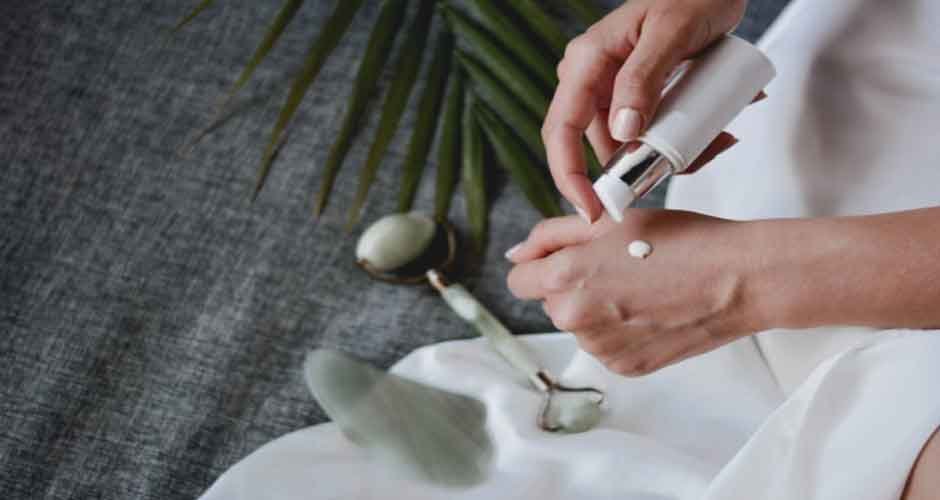
When your skin is healthy and radiant, you develop a great feeling of confidence and self-assurance. When first impressions matter, you want to always look dazzling, which can be done by prioritizing skincare. With endless options of cosmetic procedures, products on the market, and hacks you could try, it may seem overwhelming to know which effective approaches to take. Here are top expert tips on how to enhance your skin’s health.
Establish a Consistent Skincare Routine
For the long-term benefits to come first, it’s prudent to come up with a schedule that guides all your skincare actions. It should start with a gentle cleansing where you’ll eliminate any impurities, oil, or dirt buildup on the skin. Proceed to apply a toner that will tighten the pores while balancing the pH levels.
This should be followed by a serum or treatment of choice, depending on the specific skincare issues you want to address. Whether it’s acne or hyperpigmentation, choose a quality product that will give you the best results. Finish off with a moisturizer to preserve the skin’s moisture and protect the skin’s barrier.
Prioritize Sun Protection
Prolonged exposure to the sun’s ultraviolet (UV) radiation can bring about premature aging, sunburns and increase the risks of skin cancer. A perfect shield for this is always applying sunscreen before leaving. This is a crucial proactive measure to stick to, particularly during the hot summers. When applying, use a generous portion and target all the skin’s exposed areas, like the face, neck, hands, and legs. Aim to use quality products, targeting those with a sun protection factor (SFP) of 30 and higher. Also, ensure it is labeled as broad spectrum and water resistant.
Visit a Medical SPA
These facilities can be the ultimate solution to all your skincare needs. Through highly skilled teams and years of experience handling skin issues, they’ll effectively curate the correct remedy. Unlike traditional spas, these centers will provide different cosmetic procedures and treatments.
Visit a facility with licensed physicians, aestheticians, and nurses with wide exposure to both cosmetic and dermatology procedures. This makes them excellent in assessing your skin and guiding you on how to tailor the treatment. Look also at their biohacking modalities and how well they execute the therapies. Top-class facilities will use quality products and protocols, guaranteeing high procedure success rates.
Hydrate Properly
When you hydrate well, you make the skin more supple and plump. Aim for at least eight glasses for the best outcomes. It may also be wise to eat fruits like melons, oranges, and pineapples to complement your daily intake. Besides the suppleness, hydrating also helps the body eliminate toxins through excretion. This results in a blemish-free, glowing skin. Consider introducing skin hydration products like glycerin and hyaluronic acid to help the skin maintain the proper hydration levels.
Practice Gentle Exfoliation
Removing dead skin cells over time is essential in preventing the clogging of pores and boosting cell turnover. Exfoliation is vital in keeping the skin healthy, but it must be done right. Be gentle to prevent any abrasion to the skin barrier. When picking your exfoliant, use gentle ingredients such as beta hydroxy acids (BHAs) and alpha hydroxy acids (AHAs).
Your usage interval also counts on how helpful your exfoliation plan is. Depending on your skin’s tolerance level, consider using them no more than two to three weekly. Apart from the chemical exfoliants, some use the physical ones such as scrubs, which is okay so long as you won’t cause micro-tears on the skin. You need to listen to your skin each time you exfoliate, and if there are any issues, seek help.
Get Adequate Sleep
There is a huge connection between your skin’s health and the quality of sleep you get. Your body naturally repairs and regenerates when you are asleep. The growth hormone regeneration will favor the renewal of the skin cells. The blood flow to the skin also helps repair UV damage and rebuild collagen. It’s good to target between seven to nine hours of sleep daily to give the body enough time to rejuvenate. Much focus though needs to be on the quality more than the quantity. Have uninterrupted sessions, which can be done by creating the right conditions around. Remove noise, improve air quality, and keep the bedroom dim-lighted or dark.
Practice Stress Management
Chronic stress can bring detrimental effects on mental and physical health, including the skin. When stress kicks in, it triggers the release of hormones such as cortisol and catecholamines. This can trigger inflammations while worsening skin conditions like psoriasis and eczema. It makes much more sense to introduce efficient stress management mechanisms.
Look for what works best for you, whether it’s medication or spending time on your hobby. Remain consistent and have personal time where you can evaluate the recent turn of events and find the right way forward. When feeling stressed, it’s recommended to avoid solitude, but instead, find someone you trust and share what you’re going through.
Eat a Balanced Diet
The skin’s health can improve when you’re keen on what goes to the plate. You want to supply the body with the right amounts of vitamins, minerals, and antioxidants, which are all crucial in supporting the skin’s tissues and cells. Eat plenty of fruits and vegetables, and for the proteins, go for the lean type. Optimizing antioxidant-rich foods is essential to deal with oxidative stress and premature aging. These include leafy greens and a wide range of blueberries and strawberries. Be regular with vitamin C and omega-3 fatty acids due to their anti-inflammatory properties.
Avoid Harsh Ingredients

Be picky when buying your skincare products to avoid landing on substandard ones, which can compromise your skin’s health. Watch out for those with harsh ingredients like sulfates, parabens, and synthetic fragrances. They can bring skin sensitivity and irritation issues by gradually weakening the skin’s moisture barrier.
Consider going through the labels of any product you’re planning to buy to ascertain that there aren’t any irritants. It also helps to do some patch tests whenever you buy a new product instead of applying it to the entire face to ascertain compatibility. When doubtful, consult with your dermatologist who will give you the correct recommendations on what to try based on your skin’s needs.
It’s easy to have healthy, glowing skin when you adopt the proper practices. It all starts with working on your lifestyle, where you’ll prioritize eating healthily and hydration. When buying cosmetics, you need to get it right with the choices, paying more attention to the ingredients. In your decision-making, also factor in your skin type and, when necessary, consult skin specialists.


